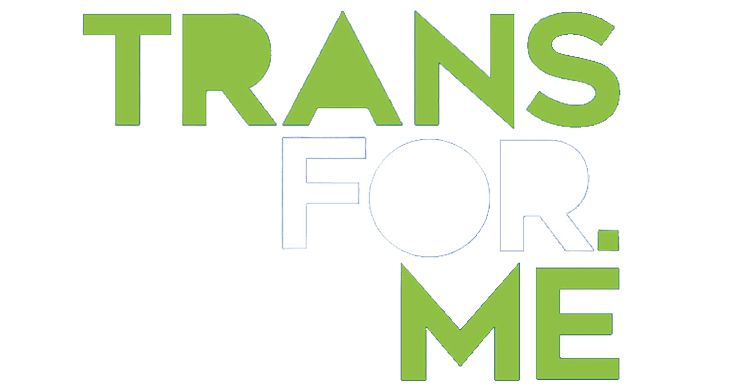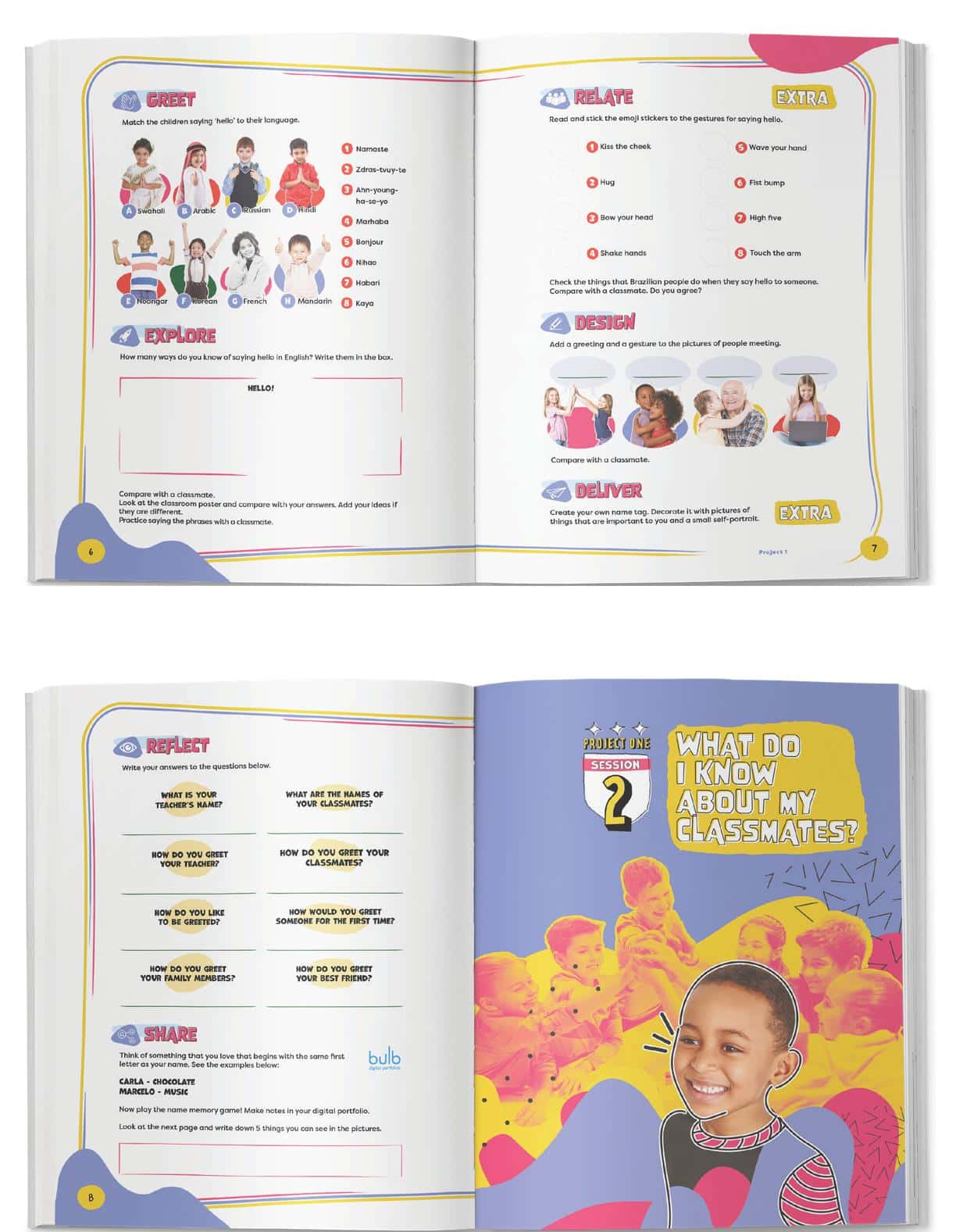

Transfor.Me Kids consists of 5 LEVELS, each with 32 SESSIONS intended for Elementary School students from grades 1 through 5. The books are divided into 4 PROJECTS that last over 8 SESSIONS and contain all the elements that the FutureWE community has categorised as being needed for success in the era of the 4th Industrial Revolution.
The projects per book provide learners with meaningful contexts to develop knowledge and skills across different content areas. They have been designed and structured to provide opportunities for the students to learn and work collaboratively and find solutions to problems that affect their everyday lives.
For bilingual and international schools
The ability to communicate in more than one language is just one of the possible definitions of what it means to be bilingual. Bilingual people know more than just speaking another language, they know how to navigate through different subjects in all the languages they were educated. TransFor.Me Kids provides a journey for the students where they will learn who they are at the same time they will develop socioemotional skills. This process is paramount for the development of their problem solving abilities and the best part is that they will do it in English.
Thus, besides enhancing their creative potential, the program also helps them develop their fluency in English.
All the sessions have a clear and consistent structure which will guide teachers and students through the FutureWe Framework stages in a stimulating and dynamic way.
This structure is what sets TransFor.Me Kids apart from a traditional course book.
We included a description of the different elements of the sessions below to help teachers who might not be familiar with this approach
The Books
What will you find in each session?
All the sessions in this series have a clear and consistent structure that lead both the teachers and the students through the stages of the Future We Framework in an engaging and dynamic way. It is this structure that sets this series apart from a traditional coursebook. To help teachers who may be new to this approach, we have included a description of the different elements that compose the sessions. Understanding the process and principles that underpin the design of this program will prepare any educator to make the transition towards this skill-based way of teaching and learning.

Greet
The initial stage of the lesson is more important than many might think. We ncourage teachers to devote time to developing a meaningful routine for greeting each other at the start of each session. This is an important way of making individual connections with the students and practicing important linguistic and social skills
Explore
Rapport is not only important for the teacher-student relationship, it is also equally important to build positive relationships between the learners themselves. The explore stage introduces cooperative games and activities that will ensure every session starts off in a way that contributes to a sense of unity and collaboration in a noncompetitive and playful way.
Relate
Children are naturally eager to learn and tapping into their curiosity is a powerful way to motivate and engage them in the topic of the session. This stage is designed to show them how the content is relevant to their lives or connect it to their interests and passions. This is when the teacher will provide the input they will need in order to explore the topic on their own in the following stages.
Design
This is the lesson stage where the children take the lead and work collaboratively with their peers on an activity, problem or challenge. They must be given time and space to think, discuss, brainstorm, create and plan. The role of the teacher here is always to model, monitor and provide input and support where and when needed.
Deliver
With their plan ready to go, the student can now bring it to life in any number of ways. Sometimes this will be by making, performing or presenting something. This is their moment for their project to become real
Reflect
Evaluation is an important stage in any teaching and learning process. In this program, rather than relying on traditional summative assessment processes, tudents are encouraged to complete tasks and reflection activities to compile an online Learner Portfolio that provides a picture of each individual’s learning journey. All students have access to their own bulb account: an online platform for digital portfolios.
Share
To close the session, there is always a moment for the group to come together again and share what they have produced, learned or achieved that day. This is a way to value what they have done as well as providing teachers with a way to gauge the learning that took place.
Authors from around the world

Danielle Hersey
is a teacher, teacher trainer, and materials writer with more than 10 years of experience in ELT. Her background is in art and illustration, with a certificate
in children’s book illustration from Rhode Island School of Design. After earning a TEFL certificate from Boston Academy of English, she taught English to international students in Boston before moving to Brazil. As a teacher and maker coordinator at a binational center, she developed lessons and trained teachers using a maker approach. She is currently committed to bringing creativity and maker-inspired empowerment to English language
learning.

James Taylor
based in Brasília, Brazil, is an EFL teacher, teacher trainer, materials writer and project manager for Active English. He’s the 2nd Vice President of BRAZ-TESOL, a committee member of BRAZ-TESOL Brasília & IATEFL TDSIG and has written coursebooks for several publishers. He produces the ELTON nominated TEFL Commute podcast & co-founded the Raise Up! project, encouraging diversity in ELT materials.

Claire Venables
has been dedicated to ELT since 2001. After a decade in Spain, she moved to Brazil in 2011 where she has worked in the creation and implementation of bilingual programs in schools, the development of teacher development courses, as a national and international speaker, materials writer, and is the
founder and Director of Active English. Despite her wideranging experience,
she is and always will be most passionate about teaching children.

Kenia Santos
is a pedagogist with pecializations in Creative Education, Art History, and
Contemporary Visual Arts. She has acted in the ELT field for over 20 years as a teacher, a pedagogical coordinator and a materials writer. She holds a CPE, a CELTA, a Positive Discipline Educator certificate and a Train the Trainer certificate.
Book a presentation
WANT TO KNOW MORE?
CONTACT US
WE WILL GET BACK TO YOU AS SOON AS POSSIBLE





